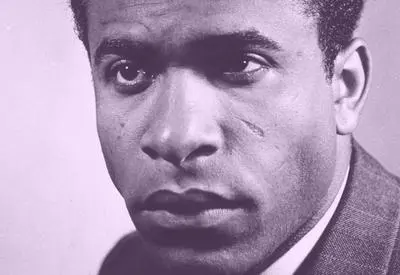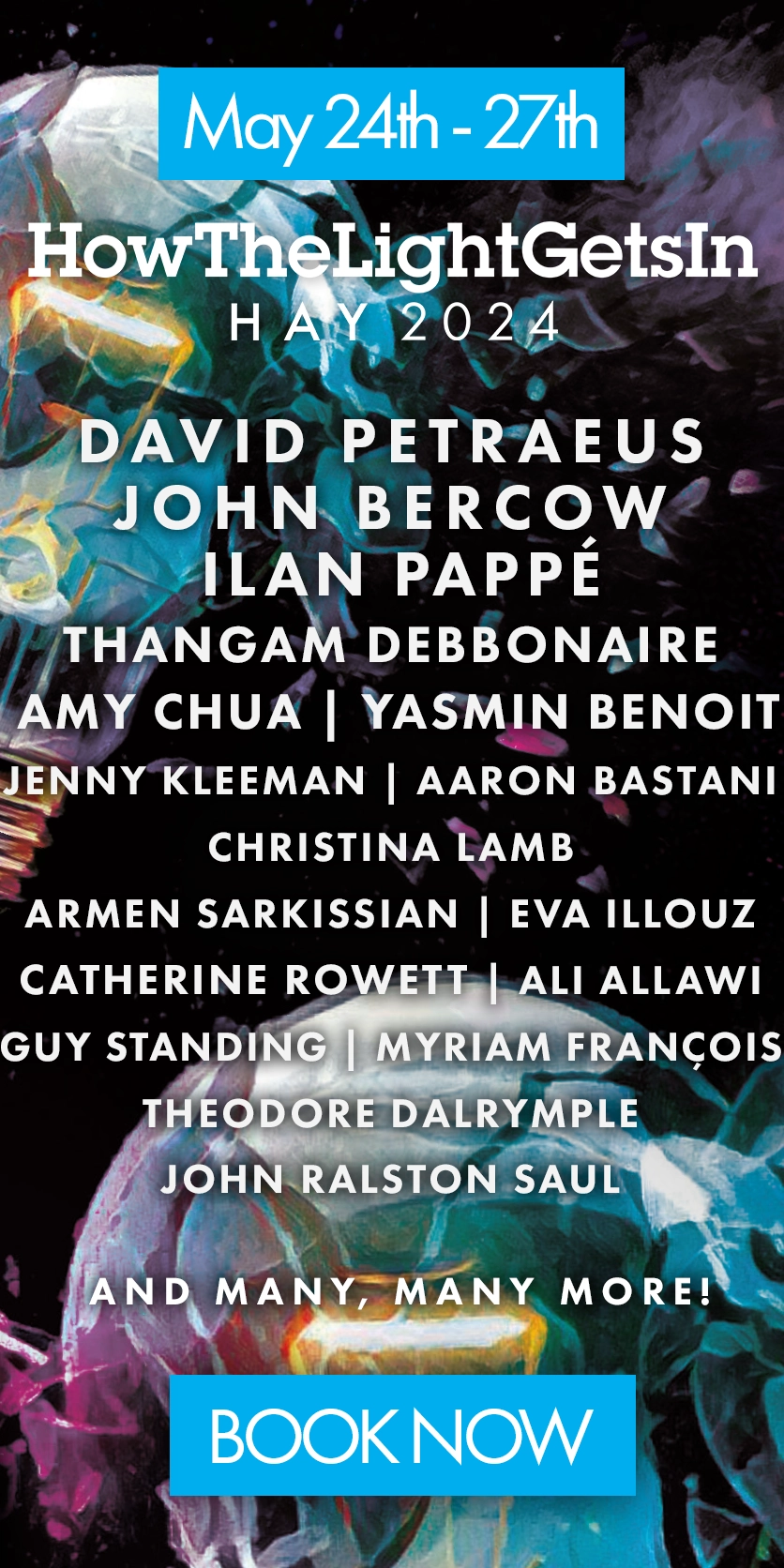Africa’s diverse philosophical traditions unfold striking accounts of ‘the good life’.
“Be not haughty with what you have learned and now know, hold forth with the unknowing as well as the sagacious,” reads the first thesis of Ptahhotep – an ancient Egyptian official who lived c. 2400 BCE, who distilled a vision of how one ought to live in thirty-seven theses. “None knows all. Excellent discourse is better than the most precious stones and is found in the most unlikely of places,” he went on.
In West Africa, Orunmila – a sage born c. 500 BCE and considered to be the most important figure in the Ifa philosophical tradition – taught that Iwa (living a virtuous life) is the most important ideal worth living for. “What matters most is good character,” rings one characteristic teaching of Orunmila. “You may be wealthy, have many children and build several houses; all come to naught if you lack good character. A life without moral rectitude is nothing but vanity.”
In the same vein, the vast corpus of ancient Ethiopian wisdom literature has concerned itself with the ‘art of living.’ Zara Yacob’s Hatata, arguably the most celebrated treatise in the Ethiopian philosophical tradition, deftly meshes the autobiographical with stringently rigorous arguments about the nature of rationality, faith, and ethics. “Why is it that all men do not adhere to truth, instead believing in falsehood?” Yacob asks. He then goes on to enumerate the reasons, pointing out that people believe their holy scriptures without questioning them, critiquing their tendency to follow ‘tradition’ slavishly, and arguing that religious beliefs are a means through which rulers manipulate and control their subject populations.
___
"A life without moral rectitude is nothing but vanity."
___
Modern African philosophy continues to be animated by philosophy as a guide to the good life. In the mid-1970s, the Kenyan philosopher Odera Oruka undertook a ‘Sage Philosophy Project’ for which he interviewed sages – people designated as wise in various African communities – on metaphysics, epistemology, ethics and philosophy of religion. Oruka highlights strikingly critical, self-reflective practices of thought flourishing in societies often caricatured in the North Atlantic world as lacking abstract, second-order thinking.
But in one of his interviews, for instance, Njeru wa Kanyenje, a sage from the Aembu community in central Kenya, pushed back against religious beliefs and ways of life: “I do not care much about God or religion. Right from the beginning, that is, when the muzungu [white people] first brought organized religion, I saw religion as a bluff. It is a white man’s witchcraft! But this witchcraft has today triumphed over the traditional African witchcraft. Today, I recognise its victory but not its truth. It is still a bluff. I do not pray to God nor do I consult witchdoctors. Both religion and witchcraft are bluffs. They have no truths in them. My great wish is that I should be spared the interference from religions and witchcrafts.”
Chaungo Barasa, a sage from Western Kenya, articulates a perfectionist concept of the good which he calls ‘humanization’: “The means to humanization is knowledge. By humanization, I mean the perfection of human life. To humanize is to live out the gift of human virtues to the utmost full. Man is always struggling to realize the human element to the full. That realisation comes through knowledge. And that is why knowledge or wisdom should be regarded highly, for through the path of knowledge, man tends towards the ideal of humanization which is the highest good for man.”
African philosophical traditions are by no means univocal on what makes for a good life. But if there is one thread that runs through these very diverse texts, it rests on the importance of acknowledging the conditions that make possible the good life.
___
"African philosophical traditions are by no means univocal on what makes for a good life."
___
Acknowledgment is realising something new about an idea or phenomenon that we previously took for granted. This is not a form of knowledge acquired by discovering radically new information. Nor is it a form of understanding gained by being convinced of a conclusion through argumentation. Instead, acknowledgment is rather more like an awakening. Often this takes place when we encounter a phenomenon that is familiar but that when viewed from a new angle, yields a startlingly new perspective of not just the object, but also our selves.
Acknowledgment comes in two stages: first, attention, that is, being seized by something that we may have looked past or through; second, realisation, that is, experiencing what we may have previously thought of as ‘banal’, ‘obvious’, or ‘peripheral’ in a new light that ripples inward and outward as we unfold its implications. In this vein, African philosophical texts make urgent demands for an intense attentiveness to the background conditions that shape how the good life should be.
In particular, five acknowledgements can help us understand what it means to be human, and hint at what the good life might mean, both individually and collectively. They are: embeddedness; encounter; entanglement; embodiment; and engenderment.
1. Neither we, nor our societies, exist in a void
Embeddedness involves acknowledging the ecological and historical background that structures and forms what we are and shapes the horizons of what we could become. Embeddedness then begins with an attentiveness to the environment writ large, the air that we breathe, the land we walk upon, the water that we drink, the fire that we use, but also the formidable weight of history – politics, economics, and culture – that molds us in ways we can scarcely enumerate.
The ancient Egyptian text The Tale of the Eloquent Peasant illustrates a striking articulation of the good life as a political project. In a subtle and brilliant reading of the text, philosopher Chike Jeffers has argued that unlike North Atlantic canonical texts that have sought to justify political authority by appealing to a state of nature, The Tale begins with “an argument from dysfunction”: “We are not presented with a scenario in which we start society from scratch, as in the state of nature, but rather … a scenario in which something in society has gone wrong and things are not working as they normally do.”
___
"Human relationships, knowledge, achievements and failures are shot through with the arbitrary, the unpredictable, and the serendipitous."
___
There are striking implications that follow from acknowledging human embeddedness. The first, of course, is the extent to which it underscores human dependence on the world they occupy. This sets limits to human agency. To acknowledge one’s embeddedness is to register the fact that certain brute facts cannot be eliminated: desire and death, suffering and hunger. We thus come to terms with contingency, chance, and luck. Human relationships, knowledge, achievements and failures are shot through with the arbitrary, the unpredictable, and the serendipitous. The space of identity, agency, and knowledge are then properly seen as always beginning in medias res. That not only renders fantastical and futile any hankering after a Golden Age ‘origin’, but it also underscores how the actions of generations of the past and present reverberate for good and ill on posterity.
2. Ideas and actions constantly transform us
Encounter refers to how exigencies, actions, and events constitute identity, ideas, and traditions. There are at least two intertwined dimensions of encounter. The first is that it shows the relational structure of human identity. Seen in this light, no human collective and no human individual is pure, self-contained, indivisible. Second, ideas and identities, ethics and aesthetics, are performative – that is, they do things, transform situations, bring about new or unrealised realities.
The implications of acknowledging encounter can be far-reaching. If, on the one hand, encounter awakens us to our own agency, it also, on the other hand, helps us recognise the independence of others, that their being is not simply a figment of our will. Additionally, and similarly to existentialism, it makes particularly salient how human identity is constituted through practice; the day to day habits that form our character. But if humans are what they do, it also means that any particular encounter may carry the possibility of radical rupture from the inertia of history. History, then, is open-ended – nothing is guaranteed. The best laid plans go awry; the most awry of situations may yield astonishing utopian fruits.
Few places carry the lessons of encounter as the West African city of Timbuktu, which flourished as a center of learning from the 13th to the 17th century. Though originally a bustling commercial crossroads for caravan trade, by the 15th century Timbuktu had become the leading intellectual hub in West Africa. In many ways, Timbuktu gives the lie to commonplaces about Africa which erase its written traditions and go on to project an invidious racial separation between a so-called “sub-Saharan” Africa and North Africa. It was precisely the encounter between West African and North African societies, Islam with a variety of religious and secularist practices, that gave birth to an extraordinary efflorescence of scholarship.
___
"No human collective and no human individual is pure, self-contained, indivisible."
___
One of the most influential Timbuktu thinkers was Ahmad Baba (1556-1627). In an insightful interpretation of Ahmad Baba’s work, the distinguished philosopher Souleymane Bachir Diagne argues that the major lesson of Baba’s manuscript, Tuhfat al-fudala, is that “knowledge is authentic and complete only when it is a way of life, when beyond the mastery of a science there is scrupulous attention to what a good life means, when the accomplished faqih (jurist) is also the fully realised ‘arif (sage).” In other words, ideas must translate into action, and action must serve ethics.
3. We are each other
Entanglement involves the acknowledgment that the political, economic, and cultural structures within which we are embedded interweave in complex relationships of dependence and interdependence, homology and disjunction, cooperation and conflict.
 SUGGESTED READING
African Philosophy Is More Than You Think It Is
By Omedi Ochieng
One political and ethical tradition within African philosophy which has given intensive thought to entanglement is the ethic of ubuntu. The South African theologian Desmond Tutu has offered perhaps one of the most succinct definitions of ubuntu: “‘My humanity is caught up, is inextricably bound up, in yours.’ We belong to a bundle of life. We say, ‘A person is a person through other persons.’ It is not, ‘I think therefore I am.’” For Tutu, such an ethic is realized through the practice of restorative justice: “We contend that there is another kind of justice, restorative justice, which was characteristic of traditional African jurisprudence. Here the central concern is not retribution or punishment. In the spirit of ubuntu, the central concern is the healing of breaches, the redressing of imbalances, the restoration of broken relationships, a seeking to rehabilitate both the victim and the perpetrator, who should be given the opportunity to be reintegrated into the community he has injured by his offense.”
SUGGESTED READING
African Philosophy Is More Than You Think It Is
By Omedi Ochieng
One political and ethical tradition within African philosophy which has given intensive thought to entanglement is the ethic of ubuntu. The South African theologian Desmond Tutu has offered perhaps one of the most succinct definitions of ubuntu: “‘My humanity is caught up, is inextricably bound up, in yours.’ We belong to a bundle of life. We say, ‘A person is a person through other persons.’ It is not, ‘I think therefore I am.’” For Tutu, such an ethic is realized through the practice of restorative justice: “We contend that there is another kind of justice, restorative justice, which was characteristic of traditional African jurisprudence. Here the central concern is not retribution or punishment. In the spirit of ubuntu, the central concern is the healing of breaches, the redressing of imbalances, the restoration of broken relationships, a seeking to rehabilitate both the victim and the perpetrator, who should be given the opportunity to be reintegrated into the community he has injured by his offense.”
Entanglement thus offers lessons for ethical conduct insofar as it reminds us of the fraught tensions between collective responsibility and individual autonomy.
4. We are our animal bodies
Embodiment is the acknowledgment of human creatureliness – that is, that the human is a particular sort of biological being (fleshly and mortal) with needs for subsistence, health, and relationships.
What follows from an acknowledgment of embodiment? It draws attention to the in-between quirks of human self-hood. It explains our shared natural needs and interests. Yet, just as crucially, embodiment also means that each being is radically particular.
There is something about each human creature that is non-fungible, nonreplicable, irreplaceable. It means then that there is an infinitely singular dimension to the good life.
 SUGGESTED READING
Can We Reinvent Ourselves? A Buddhist View
By Bronwyn Finnigan
This acknowledgment is sublimely explicated in the Manden Charter, an early thirteenth century document promulgated by Sunjata Keita, founder of the Mali empire in West Africa. The document begins with a categorical recognition of the value of each life: “Every (human) life is a life. It is true that a life comes to existence before another life, but no life is more ‘ancient,’ more respectable than another life, just as no life is superior to another life.”
SUGGESTED READING
Can We Reinvent Ourselves? A Buddhist View
By Bronwyn Finnigan
This acknowledgment is sublimely explicated in the Manden Charter, an early thirteenth century document promulgated by Sunjata Keita, founder of the Mali empire in West Africa. The document begins with a categorical recognition of the value of each life: “Every (human) life is a life. It is true that a life comes to existence before another life, but no life is more ‘ancient,’ more respectable than another life, just as no life is superior to another life.”
These arguments will strike readers as uncannily resonant with those they are familiar with from the North Atlantic tradition – specifically, those proclaimed in the French revolutionary slogan, Liberté, égalité, fraternité. Such resonance should only further underscore the manner in which African philosophy has been at the leading edge in articulating ethically innovative and political transformative ideas. To be sure, where North Atlantic philosophy has often driven a wedge between individual singularity and social entanglement, African philosophical texts such as the Manden Charter proffer a vision wherein individual flourishing is constituent of collective projects.
5. We can imagine a different world
Finally, the fifth acknowledgment is engenderment. This involves realising our capacities for reimagining, reinventing, and recreating prevailing institutions and practices. In thinking through the implications of engenderment, we come to the realization that the world we inhabit is not the only world that is possible; that the lives set out before us – by our societies, our families, or our own ideas about what is realistic – can be radically remade.
African feminist thinkers have been at the forefront of precisely this sort of radical reimagination. Thinkers such as Oyeronke Oyewumi, Ifi Amadiume, and Nkiru Nzegwu have argued, for instance, that gender identities in many African societies are far from the fixed, natural categories that canonical philosophers in the North Atlantic world have made them out to be. According to Ifi Amadiume, in Nnobi society, gender was flexible and ‘neutered’ in that it was not based on a strictly biological criterion of classification. Oyewumi has gone further, arguing that in the Yoruba society prior to Western colonisation, gender did not feature as a vector of social organisation and hierarchy.
 SUGGESTED READING
Are You As Good As You Think?
By Christian B. Miller
In critiquing widely held assumptions about the past, African feminists have also proffered striking visions of the future. For the Nigerian feminist philosopher Nkiru Nzegwu, imagination is a constitutive dimension of social life. Reflecting on the historical place of aesthetics in African societies, Nzegwu has argued that “art is conceived as intricately interwoven with other aspects of life. It is community focused. So, the critical question in creativity is no longer what constitutes a work of art, but what is the relationship between creative objects and social life in a given society.”
SUGGESTED READING
Are You As Good As You Think?
By Christian B. Miller
In critiquing widely held assumptions about the past, African feminists have also proffered striking visions of the future. For the Nigerian feminist philosopher Nkiru Nzegwu, imagination is a constitutive dimension of social life. Reflecting on the historical place of aesthetics in African societies, Nzegwu has argued that “art is conceived as intricately interwoven with other aspects of life. It is community focused. So, the critical question in creativity is no longer what constitutes a work of art, but what is the relationship between creative objects and social life in a given society.”
These five acknowledgments will not issue moralistic prescriptions on the right way to live. Instead, they are a summons to richly pluralistic, diverse ways of life. But nor do they tempt us to an easy resort to the comforts of relativism. What emerges, rather, is the promise of lives robustly responsive to ecological flourishing; alive to global solidarities and relationships; open to encounters, from the ordinary to the uncanny; and generative of imaginations attuned to the brutal realities of our moment and yet wondrous in their power to call forth alternative, sublime worlds.

















Join the conversation